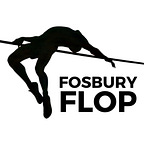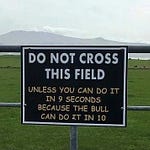The Soviet Lev P. Matveyev was considered by many an eminence in the global approach to training and periodization theory. The story goes that Stalin asked him what where the most important training principles to beat the Americans in the next Olympics. Matveyev, after investigating, replied that the key was the principle of individuality. This clashed with communism and was not applied as the sport scientist suggested.
Wolfgang Schöllhorn trained different German athletes and led them to success with training methods that respected the individuality of each one. Then, with enough evidence, he published his Differential Learning Theory. A learning theory that opposes the repetition of an “ideal” movement based on what the traditional textbooks say. It is about finding performance patterns according to each person’s individuality. Differential Learning Theory is about empowerment. It does not force to produce any movement pattern. It forces to discover yours, it teaches you to constantly adapt.
Martí Cañellas | Fosbury Flop
If it’s more convenient for you, here you have the video of the conversation with Wolfgang. You can also turn on YouTube’s automatic subtitles.
You can also access the conversation in the following platforms:
Spotify | Apple Podcasts | iVoox | Google Podcasts | Amazon Music
You can also read the Fosbury Flop podcast, the automatic transcript of the episode is available for you. You can find it in the menu at the top.
Notes of the episode
Wolfgang Schöllhorn on Linkedin
Wolfgang Schöllhorn on ResearchGate
Time scales of adaptive behavior and motor learning in the presence of stochastic perturbations | Wolfgang I. Schöllhorn, Gottfried Mayer-Kress, Karl M. Newell & Maren Michelbrink
Always Pay Attention to Which Model of Motor Learning You Are Using | Wolfgang I. Schöllhorn, Nikolas Rizzi, Agne Slapsinskaite-Dackeviciene & Nuno Leite
Does noise provide a basis for the unification of motor learning theories? | Wolfgang I. Schöllhorn, Hendrik Beckmann, Maren Michelbrink, Michael Sechelmann, Martin Trockel & Keith Davids
The nonlinear nature of learning - A differential learning approach | Wolfgang I. Schöllhorn, Patrick Hegen & Keith Davids
Differential learning as a key training approach to improve creative and tactical behavior in soccer | Sara Santos, Diogo Coutinho, Bruno Gonçalves, Wolfgang I. Schöllhorn, Jaime Sampaio & Nuno Leite
A new method to learn to start in speed skating: a differencial learning approach | Geert J. Savelsbergh, Willemiek J. Kamper, Jorine Rabius, Jos J. de Koning & Wolfgang I. Schöllhorn
Explaining the unique nature of individual gait patterns with deep learning | Fabian Horst, Sebastian Lapuschkin, Wojciech Samek, Klaus-Robert Müller & Wolfgang I. Schöllhorn
Repetition without Repetition or Differential Learning of Multiple Techniques in Volleyball? | Julius B. Apidogo, Johannes Burdack & Wolfgang I. Schöllhorn
Differential Training Facilitates Early Consolidation in Motor Learning | Diana Henz & Wolfgang I. Schöllhorn
What Is Stochastic Resonance? Definitions, Misconceptions, Debates, and Its Relevance to Biology | Mark D. McDonnell & Derek Abbott
More Fosbury Flop…
Fosbury Flop is for the people, by the people. If it brings you value and you want to support the project, you can help to make it possible recommending it to a friend or upgrading your subscription.














